quantumcomputing
Latest
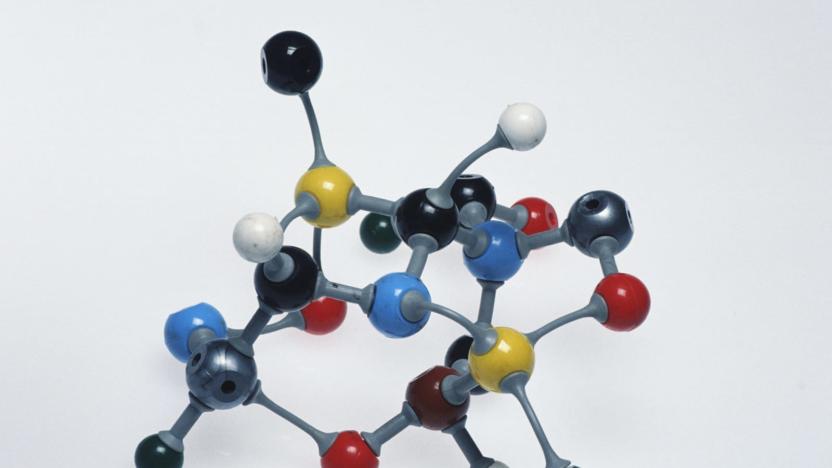
IBM's simulated molecule could lead to drug and energy advances
IBM's quantum computer has made a small advance that could ultimately lead to a major chemistry breakthrough. A team of IBM researchers has successfully used IBM Q to accurately simulate the molecular structure of beryllium hydride (BeH2), the largest molecule ever to be simulated by a quantum computer to date. This is pretty important, because simulating any molecule on a quantum level is no easy task, never mind a big one.
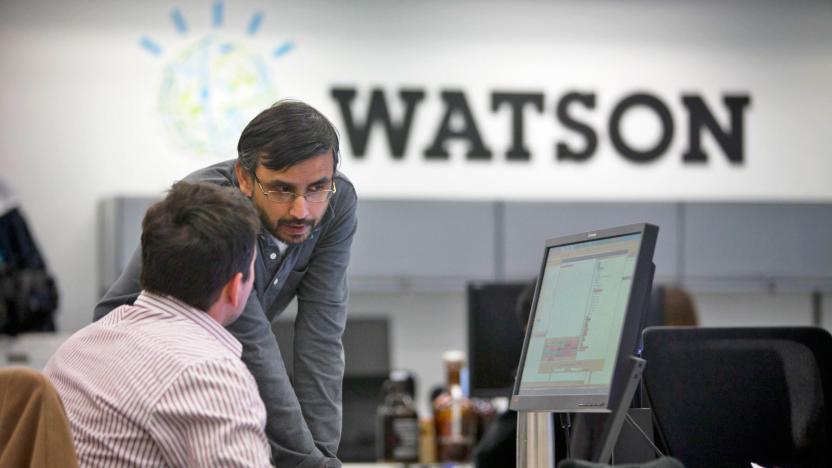
IBM is installing a Watson AI lab at MIT
Both MIT and IBM are leaders in the field of Artificial Intelligence and now they're teaming up. IBM announced on Thursday that it had reached a 10-year research partnership agreement with the university worth nearly a quarter of a billion dollars. That investment will see more than 100 researchers from both organizations collaborating to advance four key focus areas within the AI field.
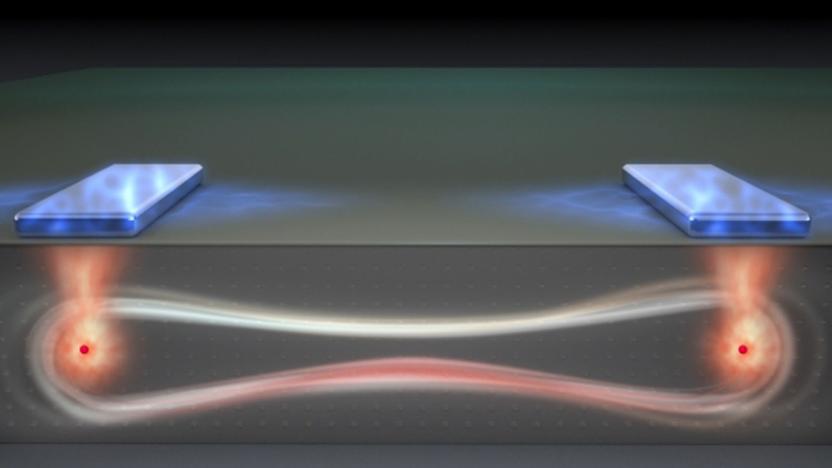
'Flip-flop' design makes quantum computers more affordable
One of the greatest challenges in quantum computing is... well, making the computers. You may need exotic manufacturing techniques just to handle the very exacting requirements, such as positioning the atoms in quantum bits in exact positions at close distances (to make quantum entanglement happen). However, that might not be a problem going forward. Australian researchers have developed a new chip design that could be built using the same silicon technology that you see in use today.

Quantum 'hashtags' may prove the existence of a strange particle
Hashtags could soon be useful for a lot more than fostering discussion on your favorite social network. Researchers have developed a hashtag-shaped quantum chip (shown below) that could confirm the existence of the oddball Majorana particle, which exists as both matter and antimatter at the same time. The team has learned that laying indium phosphide nanowires in the familiar '#' shape creates a closed circuit that lets the particles pass by each other and braid, rather that annihilating each other like they would on a single wire. Think of it like creating streets with intersections instead of a one-lane road -- the 'traffic' can actually get around without collisions.
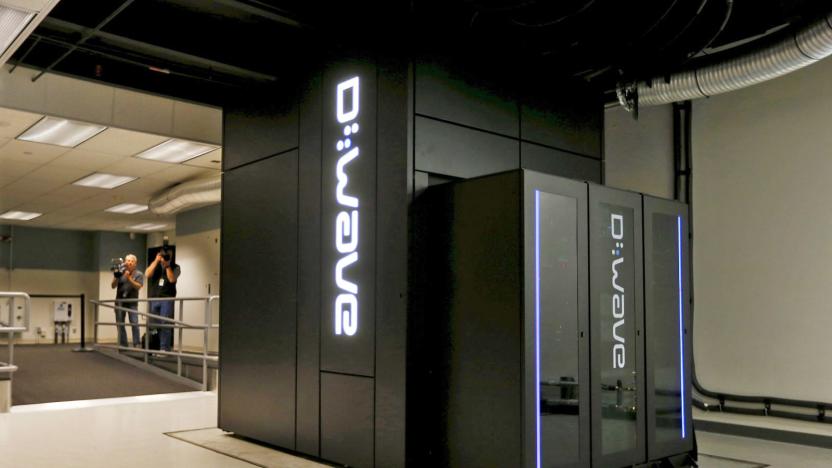
Google wants to sell quantum computing in the cloud
Whether or not you believe Google has honest-to-goodness quantum computers, the bigger problem is their limited access: they're largely off-limits outside of the company itself. That could change sooner than you think, though. Bloomberg sources understand that Google is gearing up toward using its quantum systems in a "faster, more powerful" computing service than it offers today. It recently started offering access to researchers in order to spur development of tools and apps (including through an open source Project Q initiative), and there's a new lab it describes as an "embryonic quantum data center." It's looking at the practical realities of quantum computing, in other words.

Silicon-laced diamonds could lead to practical quantum computers
Scientists already believe that diamonds could be a solid foundation for practical quantum computers. You can use atom-scale defects in diamond to store quantum bits that hold contradictory data (say, both on and off) in a way that lets you read the data without the risk of changing it. But there's a problem. The most common defect, where nitrogen atoms replace carbon atoms, emits such a broad range of light that it's too inaccurate to be useful. However, a team of researchers may have a way to keep those inaccuracies to a minimum: slip in some silicon, which emits a much narrower range of light.
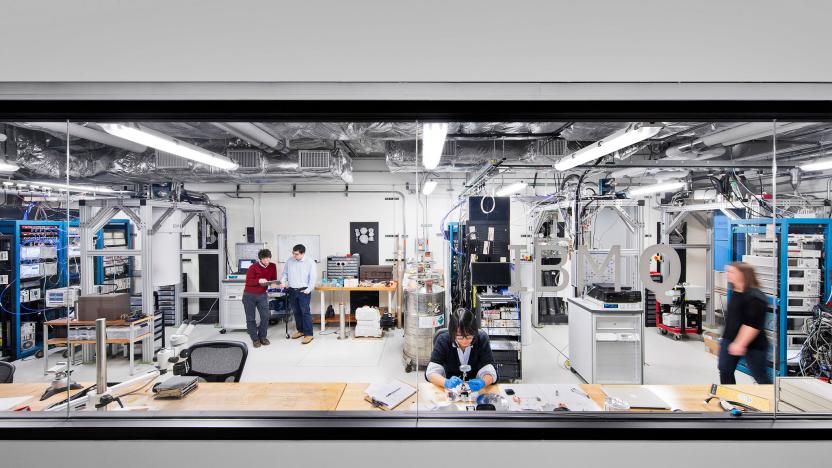
IBM unveils its most powerful quantum processor yet
IBM's two quantum computing platforms just took a leap forward in processing power. The company announced today that it has successfully built and tested its two most powerful quantum computers yet -- the research and business-focused Quantum Experience universal computer and the prototype processor that will eventually form the core of its commercial IBM Q systems.
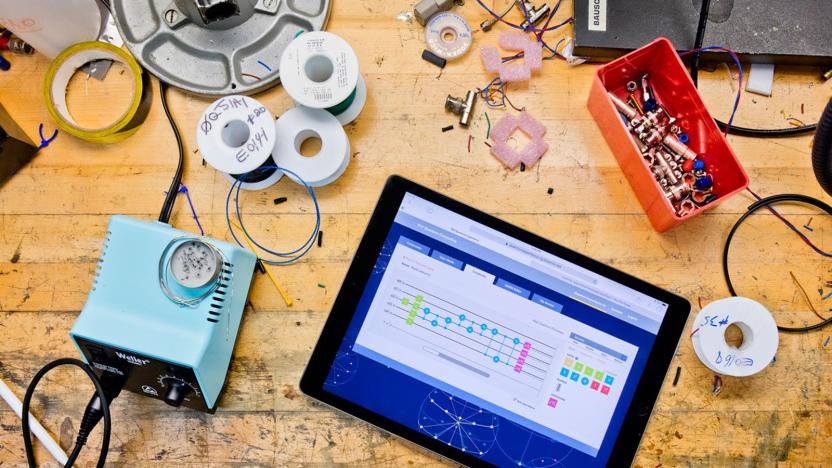
IBM plans to build a universal quantum computer
Companies can technically buy a quantum computer right now, but it's not really the same as a general-purpose computer. Even if you don't question whether or not it is quantum computing, it really amounts to specialized hardware. However, IBM hopes to change all that: it's planning to build the first commercially-oriented universal quantum computer. The plan is to build a system with roughly 50 quantum bits (the Quantum Experience started with 5 and now simulates 20) within the next few years. That may not sound like much, but 50 qubits could be more powerful than the best supercomputers when handling some calculations -- tasks that were impractical before would suddenly be within reach.

Scientists prove it's possible to build a DNA computer
Scientists at the University of Manchester, led by Professor Ross D. King, have created a new DNA-based computing device. If you think of DNA as being the code for generating life, then it's not hard to see it as capable of performing other tasks. Just as the four key proteins of DNA can be combined to tell white blood cells to attack infections or grow hair, they could also theoretically be used to analyze massive amounts of climate data... or you know, render a disturbingly realistic Nazi to shoot in the face.

Scientists hold the first quantum computer face-off
For the first time ever, two quantum computers have faced off against each other in a series of experiments to determine which technology reigns supreme. A team of researchers from the University of Maryland have pitted their own quantum computer against IBM's creation, running the same algorithms on both at the same time. The winner? Well, it's kind of a tie. IBM's is faster than Maryland's, but it's also much less accurate. In one test, Maryland got 77.1 percent in accuracy, while IBM only got 35.1 percent. IBM's, however, was up to 1,000 faster than its competitor.

D-Wave has its first customer for a $15 million quantum computer
The last time we reported on Canadian quantum computing company D-Wave, it'd extended a contract for its 500-qubit D-Wave Two machine. Now, the firm has announced a major step forward: commercial availability of the D-Wave 2000Q, which it says has 2,000 qubits and costs a whopping $15 million. More than that, D-Wave has its first customer lined up for the pricey machine. "Cutting-edge cyber security firm" Temporal Defense Systems. There, the computer will be used for chipping away at problems that are far more complex and previously thought to be unsolvable.

The world's smallest radio works through tiny diamond flaws
Researchers at Harvard John A. Paulson School of Engineering and Applied Sciences have made the world's tiniest radio receiver through an assembly of atomic-level defects inside pink diamonds. The radio receiver can withstand harsh environments, high temperatures and could even be embedded in humans thanks to its biocompatibility. The team was still able to play music through the receiver at around 660 Fahrenheit, which be perfect for when the sun eventually eats the solar system.

Australians researchers have built a better qubit
Qubits, the unit of information used by quantum computers, make use of a phenomenon known as "superposition" wherein they can exist in two separate quantum states simultaneously. Theoretically, they'd enable computers to perform a variety of tasks far faster than conventional desktops by performing simultaneous computations in parallel. The problem is that qubits tend to be very unstable which prevents the information the contain from being read. However, a team of researchers from the University of New South Wales (UNSW) in Australia may have finally tamed the elusive qubit. They've coerced one into remaining stable for ten times as long as normal qubits.

Atomic-sized MRI uses quantum bits to help discover new drugs
Researchers have used quantum computing tech to miniaturize a magnetic resonance imaging (MRI) scanner, making it small enough to pick up the structure of single biomolecules without damaging them or losing information in the process. This could make it a key tool for drug discovery and other biotech research.

Quantum computers show potential to revolutionize chemistry
If you have trouble wrapping your mind around quantum physics, don't worry -- it's even hard for supercomputers. The solution, according to researchers from Google, Harvard, Lawrence Berkeley National Laboratories and others? Why, use a quantum computer, of course. The team accurately predicted chemical reaction rates using a supercooled quantum circuit, a result that could lead to improved solar cells, batteries, flexible electronics and much more.

Google tinkers with Chrome cryptosecurity to fight quantum hacks
Today's encryption is an arms race as digital security experts try to hold off hackers' attempts to break open user data. But there's a new tech on the horizon that even the NSA recognizes as crucial to protect against: quantum computing, which is expected to dramatically speed up attempts to crack some commonly-used cryptographic schemes. To get ahead of the game, Google is testing new digital security setups on single-digit populations of Chrome users.
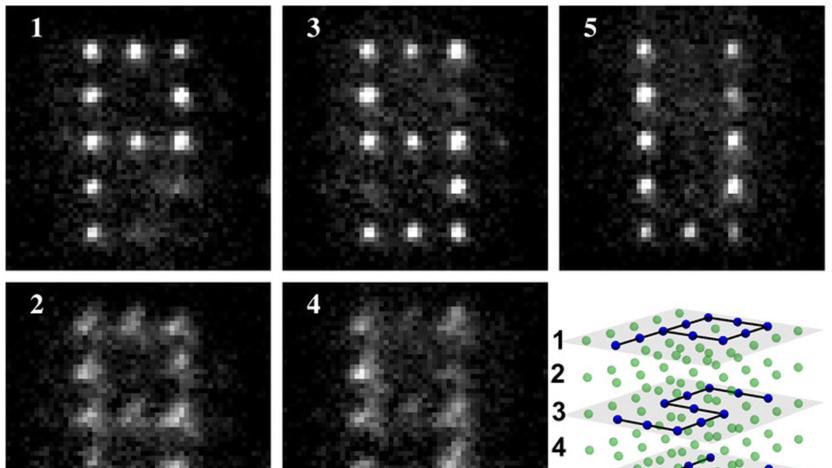
Lasers and microwaves lead to better quantum computing circuits
If you're going to craft a quantum computer, you need to corral lots of quantum bits (qubits) to perform calculations... and Penn State researchers have found a way to make that happen. They've developed a technique that relies on lasers and microwaves to steer a tightly packed, 3D grid of atoms that serve as qubits. When you want to change the state of these atoms, you hit them with crossed laser beams and then bathe them in uniform microwaves. In a test, scientists had enough control to spell out "PSU" across a three-layer array of 125 atoms.

IBM opens its quantum computer to the public
Want to use a real, honest-to-goodness quantum computer yourself? Now's your chance. IBM has introduced a cloud-based platform, the Quantum Experience, that lets anyone try a 5-qubit quantum computer for themselves. You can run algorithms and experiments, try simulations and tutorials or even work with the individual qubits. This isn't a truly universal machine, but it'll show you at least some of what non-binary computing can do.

EU invests 1 billion Euros to make quantum computing practical
The European Union doesn't want to simply wait around while scientists figure out the fundamentals of quantum computing; it's giving the concept a big financial boost, too. The European Commission has revealed plans for a €1 billion ($1.13 billion) "quantum technologies flagship" that, like other EU-level efforts, aims to turn scientific discoveries into practical realities. The Commission expects the project to help everything from motion sensors in phones to virtually unhackable communications. Honest-to-goodness quantum computers are some of the long-term goals, the EU says.

Canada's prime minister schools reporter on quantum computing
Justin Trudeau, Canada's prime minister, paid a visit to the Perimeter for Theoretical Physics in Waterloo earlier today. There, he encountered a sassy reporter who seemingly didn't expect him to know much about quantum computing. But, as it turns out, Trudeau is well-versed on the topic, so he took the opportunity to break it down for everyone the event.









